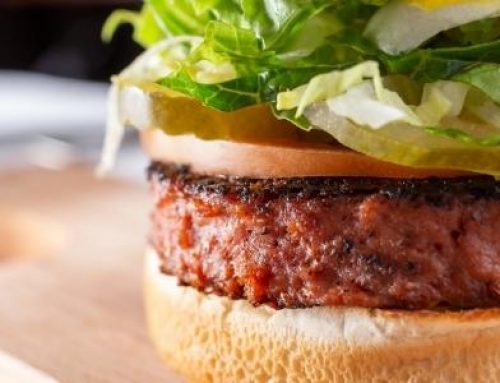 As a nutritionist, I often focus on increasing the nutrient density while reducing the energy density of a client’s diet. This isn’t surprising considering our current environment we live in promotes over-consumption of highly processed foods and sedentary lifestyles. When it comes to losing weight the energy balance equation still holds true, we need to create an energy deficit.
As a nutritionist, I often focus on increasing the nutrient density while reducing the energy density of a client’s diet. This isn’t surprising considering our current environment we live in promotes over-consumption of highly processed foods and sedentary lifestyles. When it comes to losing weight the energy balance equation still holds true, we need to create an energy deficit.
However, due to this constant bombardment of ‘eat less’, 1,200 calorie weight loss challenges and unqualified internet experts, I’m seeing more and more clients who are pushing energy restriction too far. Plus, with time being such a valued commodity, we’re prone to wanting quick and easy fixes.
I mean, who has the patience to develop lifestyle habits that promote better body composition through gradually decreasing the energy density of their diet and increasing physical activity levels? Life’s too short for that! Now, excuse me while I toss my capsicums in the bin because of their sugar content.
So it’s not uncommon for me to see people who are suffering from inadequate energy intake, rather than over abundance.
It’s not an extensive list but there are a number of groups which I’ve noticed are more prone to under-eating:
- Formerly overweight individuals.
- Young female athletes.
- Middle-aged parents who have decided to run a marathon/triathlon/get fit/lose weight.
- Athletes or people whose jobs/passions are judged on weight/aesthetics.
In reality, the majority of clients I see who are looking for weight loss tend to be aiming too low.
But is this even a problem?
The body is always trying to maintain ‘homoeostasis’. That is, the body likes a very particular environment in which it thrives. Similar to a thermostat in a house, the body will make necessary adjustments to bring the body back to baseline.
Our bodies have a body-fat set range, which the body likes to maintain. When we drastically change our energy intake to reduce this, the body notices and will put in place strategies to close the energy imbalance. It also appears that the harder or further we push the body outside of its comfort zone, the stronger it will fight back.
The problem is, we’re terrible at listening to our bodies and listening to what it’s trying to tell us. Many of us also aren’t taking objective feedback or measurements and aren’t sure what things to look for when changing our diet.
So how can I tell if I’m not eating enough?
If you’ve noticed any or some of the metrics below, then it MAY be that you have pushed things a little too far and would benefit from increasing your energy intake slightly.
*Note that numerous other factors can affect the points below and should be considered in addition to energy intake.
1. Your performance has gone to the dumps
This is a relatively obvious one, but can often take time for us to realise. Have you stopped progressing? Lost motivation to train? Or feel like you lack energy throughout the day? The body relies on food for energy. We can’t create energy out of thin air; it must come from the carbs, fats and proteins we consume in food and drink. Reduced food intake equals reduced energy. If we drop our calories too far, we may gradually start to become glycogen depleted. Glycogen is our primary source of energy, especially for higher intensity activities. If you’re tanking halfway through a session, it may be due to your body running on empty and not having the time to break down and utilise fat for fuel.
2. You’re constantly sore, sick or fatigued
If you’re constantly feeling tired, sore or ill, then your diet may be contributing to your woes. When we are too restrictive with food, we are reducing the opportunities to get adequate energy and nutrients. Studies have shown that even short-term diets resulting in a few kilos lost can reduce several important immune system functions! Getting enough energy and a varied diet will allow the right amount of protein, vitamins and minerals which are essential to maintaining the body’s natural defences.
3. You find yourself binging regularly
Increased restriction heightens the probability of binge eating or disinhibited types of eating. As I mentioned earlier, when we push the body too far from its comfort zone, by being overly restrictive, it will naturally fight to make you eat more. Your body will increase hunger hormones, make you constantly think about food and increase cravings for highly-palatable foods.
If you’ve ever found yourself being overly strict during the week only to end up eating all the foods over the weekend, vowing to start fresh on Monday, then this may apply to you. You’ll see better results from increasing food slightly so that you can fit in some foods you enjoy and are more consistent across the week/month/year.
4. You swear at your cat/partner/salad
Do you find yourself snapping over small details? Feel like crying or breaking things when your oats overflow in the microwave? Do you have a tantrum when you get home from a long day, and the cream falls out of your fridge spilling on the floor?
That is a sign that you may need to ease up. Prolonged periods of energy restriction result in a near constant state of hanger. Your tolerance levels decrease and small things that wouldn’t normally upset you seem like a big deal. Increase your food a little and watch your friends, co-workers, partner and pets move back into a 10-metre radius of you.
5. Your libido has flatlined
Yeah, I’m going there. If you or your partner has noticed that you’re not as ‘interested’ as you used to be, then your energy intake may be part of the problem. When we restrict energy, our bodies tend to down-regulate certain systems to provide energy for other systems more crucial to survival. Unfortunately, our reproductive system tends to be one that takes a hit. Testosterone and other essential sex hormones drop, and so does our ‘interest’. On top of this, fatigue levels tend to increase on diets, and instead of daydreaming about [insert your fantasy here] you’re fantasising about a pint of Ben & Jerry’s.
6. You’re constantly cold
This is fairly common and happens due to a number of adaptive mechanisms. With decreased food intake comes a reduction in our metabolism. A reduced metabolic rate means less energy being “burnt” and less heat being produced by the body. We’re also likely seeing a reduction in body fat which acts as insulation in the body.
7. You’re constantly hungry
Hunger. It’s many dieter’s worst nightmare and has been the cause of many failed weight loss attempts. There are a number of ways in which we can reduce hunger when dieting, through making smart food choices. However, other physiological and psychological adaptions in the body are largely outside of our control. Ghrelin is one of the major hunger hormones in our bodies. As energy restriction rises and we push our bodies further out of their comfort zone, ghrelin also increases. Psychologically, we also see an increase in time spent thinking about food, talking about food and watching food network (or is that just me?).
Remember, the majority of us aren’t in a race when it comes to weight-loss or health. The methods used to achieve short-term rapid weight loss and long term sustainable weight loss are vastly different and should be considered. Just because you feel like you could eat less or lose weight at a faster rate right now, doesn’t mean that’s going to be your best long term choice.
Play the long game and aim for sustainability.
If you’d like further help with your nutrition please click below:
References:
Osburne RC, Myers EA, Rodbard D, Burman KD, Georges LP, O’Brian JT. Adaptation to hypocaloric feeding: Physiologic significance of the fall in serum T 3 as measured by the pulse wave arrival time (QKd). Metabolism. 1983 Jan 31;32(1):9-13.
Walsh NP, Gleeson M, Pyne DB, Nieman DC, Dhabhar FS, Shephard RJ, Oliver SJ, Bermon S, Kajeniene A. Position statement part two: maintaining immune health.
Kuijer RG, Boyce JA. Chocolate cake. Guilt or celebration? Associations with healthy eating attitudes, perceived behavioural control, intentions and weight-loss. Appetite. 2014 Mar 1;74:48-54.





